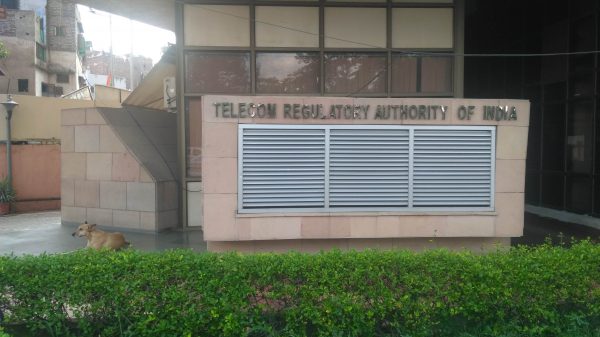The Ministry of Information & Broadcasting (MIB) said in a letter to streaming services and news organisations on June 10 that traditional news organisations with an online presence cannot be exempted from complying with the IT Rules. MediaNama obtained this communication through an RTI application.
Kshitij Aggarwal, Assistant Director of Digital Media at the ministry, argued in the five-page letter that traditional news organisations need not worry as the Rules merely extend obligations they already adhere to, and as far as grievance redressal is concerned, they could simply retrofit their TV/print self-regulatory bodies to cover online content as well.
Recap: The Information Technology (Intermediary Guidelines and Digital Media Ethics Code) Rules, 2021 require news organisations to appoint a grievance redressal officer, adhere to media laws that already cover television and print media, and submit to a three-tier grievance redressal mechanism.
The letter does not seem to have convinced traditional news publishers — the Digital News Publishers Association, which despite its name represents only traditional news media companies with a digital presence — approached the Madras High Court after this letter was sent, calling the Rules unconstitutional. The court on Wednesday issued notice on this application. Another petition against the Rules filed a couple weeks prior by the Internet Freedom Foundation and Carnatic singer TM Krishna has been tagged with the DNPA’s petition.
“No new or additional compliance”
- Traditional media already required to comply with key asks: “The Code of Ethics laid down under the Digital Media Rules, 2021 provide that the digital news publishers shall adhere to the codes which have three elements — (a) the Programme Code under the Cable Television Networks (Regulation) Act; (b) the Norms of Journalistic Conduct under the Press Council Act; and (c) that content which is prohibited under any law for the time being in force be not published,” the letter said. “The traditional media publishers (TV and Print) are already regulated by these norms. Accordingly, extending these norms to the digital news platforms of the organisations which are in the business of traditional news (TV and Print) is no new or additional compliance.” The Press Council Act covers replica e-papers, but not websites themselves, the Ministry argued and said that the digital presence of such organisations needs to be regulated.
- Difference in printed and digital content: The Ministry also contested news organisations’ arguments that the latter mostly put up the same content online that airs on TV or is printed on newspapers, and therefore, shouldn’t be regulated. The Ministry said that sometimes the content put online is different, and thus cannot be exempted. The Ministry also cited a decision by a TV news self-regulatory body, the News Broadcasting Standards Association, that ruled that it did not have jurisdiction over the websites of its members. Granting an exemption from applicability would thus be unfair to digital-only publishers, the Ministry argued. Newspapers are regulated by press registration laws, and websites weren’t, the Ministry argued. Aggarwal said that a concession had been provided by making sure that the burden of traditional media to furnish information was less onerous than what was required from digital-only publications. The letter added that traditional media houses could simply register their existing self-regulatory bodies and update their grievance processes to comply with the IT Rules.
- Livestream of news channels on OTT, not a regulatory burden: The Ministry insisted that streaming services should not be concerned about exposing themselves to liability on livestreaming news content. “First and foremost, [the definition of] “online curated content” […] specifically excludes ‘news and current affairs content,'” the letter said (emphasis theirs). However, the Ministry added, “When any news and current affairs content of a digital news publisher is transmitted on an OTT platform, such content would be outside the regulatory responsibility of that platform. However, if any OTT platform receives a grievance related to such news and current affairs content, it may transfer the same to the concerned publisher of that content.”
- Level III committee is “residual”: The Ministry argued that the formation of the Level III Inter-Departmental Committee by the government to take up appeals from Level II and sometimes act independently, was neither an overreach nor constitutes government censorship. Aggarwal said that news and non-news TV channels had been subject to a similar Inter-Ministerial Committee since 2005, and had largely complied with orders and warnings issued by the body. On top of this, the letter argued, Level III was “visualised” as a residual layer, meaning it would ideally only take up appeals of the few complaints that don’t get resolved in the two levels below it already. This provision is consistent with the IT Act, the Ministry argued.
- Ministry will look into “large number of grievances”: The Ministry said it has not been told of specific instances where a news organisation has been flooded with a burdensome number of complaints under the IT Act. If it receives any such complaints from specific publishers, the Ministry said that such representations would be “considered appropriately”.
- Comply! The letter ends with a reminder to news organisations to comply with the Rules as soon as possible. “In the overall context, the Digital Media Rules, 2021 may be complied with by the digital news publishers and OTT platforms without any misapprehensions. The publishers may furnish the requisite information in the prescribed format immediately, take urgent steps for appointing a Grievance Officer (if not already done) and place all the relevant details on the public domain, and constitute self-regulatory bodies through mutual consultation so that the grievances are addressed at the level of publishers (or their self-regulating bodies) themselves,” the Ministry concluded.
Also read
- Madras High Court Issues Notice To Union Government Over Plea Moved By Media Outlets Challenging IT Rules 2021
- All you need to know about the petition challenging IT Rules 2021 in Madras High Court
- Petition filed against Twitter in Delhi High Court for ‘non-compliance’ with IT Rules 2021
- Read coverage of our event on the impact of the IT Rules on news organisations here














